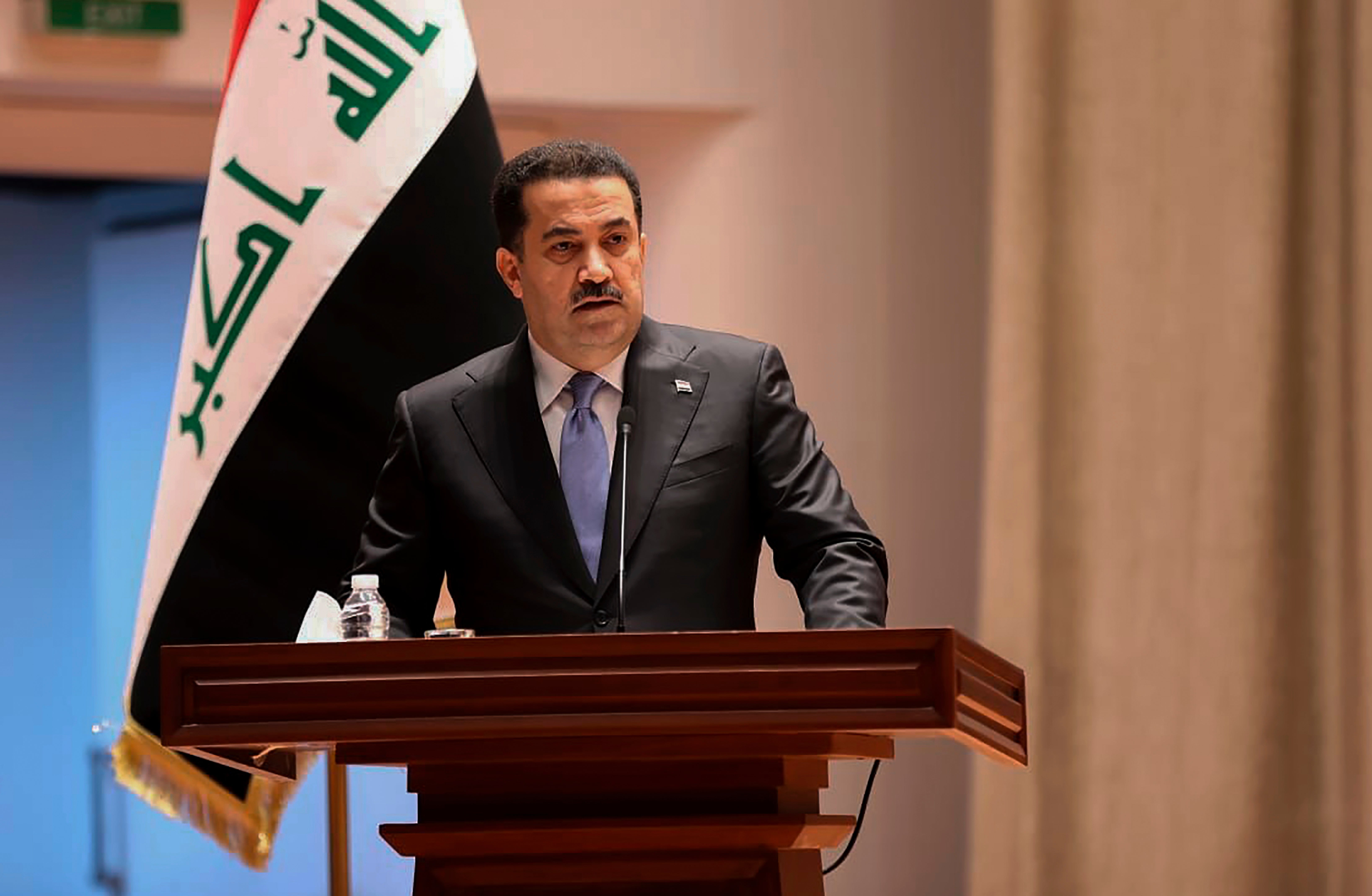New Iraqi PM hopes to continue fostering Iran-Saudi dialogue
Iraq’s new Prime Minister Mohammed Shia al-Sudani says he hopes to continue hosting talks in Iraq between regional arch-enemies Saudi Arabia and Iran during his tenure

Iraq's new Prime Minister Mohammed Shia al-Sudani said Tuesday that he hopes to continue hosting talks in Iraq between regional arch-enemies Saudi Arabia and Iran during his tenure.
Speaking at his first press conference since his government received the parliament's vote of confidence on Thursday, al-Sudani said his administration had received signs of interest in Iraq continuing to facilitate a dialogue between the two countries.
"We were asked to continue,” he said, without elaborating.
Iraq has hosted several rounds of direct talks between officials from the two regional rivals since last year, though the talks have so far produced few results.
Saudi Arabia has sought talks with Iran as the kingdom tries to end its years-long war in Yemen against Iran-backed Houthi rebels.
Al-Sudani's government is the first in Iraq since 2005 that does not include seats from the political bloc of influential Shiite cleric Muqtada al-Sadr. The confirmation of the new Cabinet last week ended a yearlong political stalemate punctuated by outbreaks of street violence, amid which al-Sadr withdrew his bloc from parliament.
The government has promised to fight corruption, speed up reconstruction of areas damaged by armed conflict and return the displaced to their homes. It also calls for the elimination of “uncontrolled weapons” held by non-state actors.
In Tuesday's remarks, al-Sudani promised to focus on the “return of stolen Iraqi funds” that may have been transferred abroad and said he will hold talks with U.S.-led forces in Iraq to understand the needs of Iraqi security forces. These include training needs and the number of coalition troops required.
U.S.-led coalition forces have officially ended their combat mission in Iraq, but continue to play an advisory role to Iraqi forces in the fight against the Islamic State extremist group.